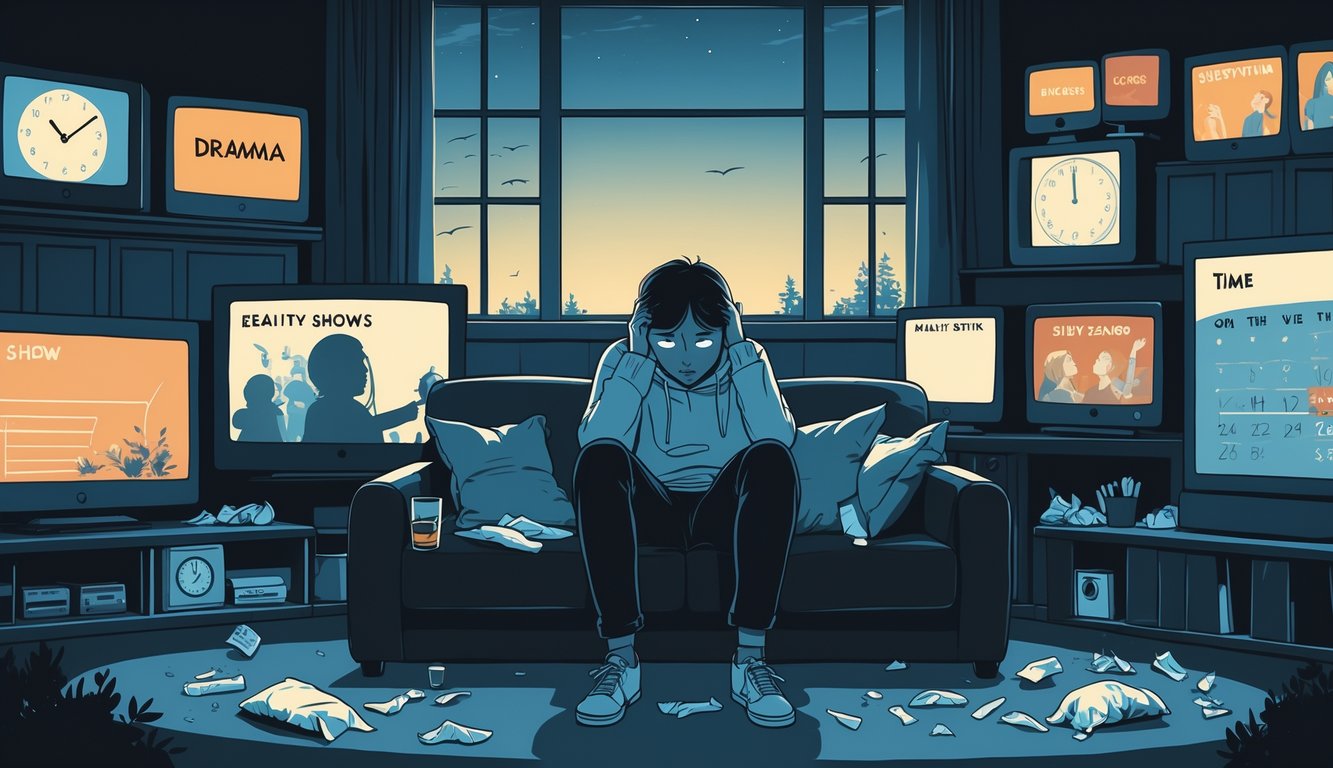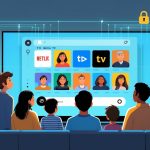
The Future of Binge-Watching Across TV Genres
Another streaming notification, another new “must-watch” series. Feels like binge-watching changes faster than I can fold laundry. Platforms tweak their tech every week, but subtitles are still impossible to find half the time. It’s the tech, it’s the hype, it’s everything at once, and none of it makes sense.
Innovation in Streaming Technology
Picture this: auto-play launches you into the next episode before you can blink, and suddenly your “recommended” row is full of marble racing documentaries. Streaming services are in some kind of weird arms race—higher-res video, real-time recommendations, AI previews, all of it.
ScienceDirect ran a 2019 survey: over half of adults under 45 admit to marathon sessions, and now the platforms are literally designing algorithms to keep us glued (actual survey results here). It’s not just about more shows; it’s about “sticky” features—custom skip-intros, pop-up ratings, apps that guess what you’ll finish while microwaving leftovers.
No one warned me about the bandwidth nightmare or that updates would break my favorite hacks every Sunday night. “Optimized viewing” toolbars? Usually just make multitasking harder. And the “next episode” auto-loads whether you want it or not—unless it’s the boring one, then it never works.
Evolving Viewer Expectations
What’s with every genre—sitcom, murder mystery, baking show—getting shoved into the same binge cycle? Expectations keep mutating. Everyone wants “inclusive” everything and zero interruptions, which, okay, fine, but Sage Journals says even that’s not enough. Nobody waits for water cooler talk; memes hit your DMs five minutes after a show drops.
It’s ridiculous—one week I want slow-burn drama, next week I’m mad if a comedy isn’t all out at once. That “sense of completion” thing is real, but why do I need a notification congratulating me for finishing a season? FOMO is a monster. Miss a drop, and spoilers ambush you everywhere.
And then there’s multitasking. It should be easier, but nope. Social features are always half-finished, comment threads are hidden, and even though Reddit fandoms go wild after every twist, the apps never seem to get how fast we want new stuff. Waiting for the perfect binge experience? Get in line—I’m still waiting too.
Frequently Asked Questions
Ads sneak in, subscription fees never match the promos, and my eyes are dry even when I swear I’m blinking. It’s not just about money—picking the wrong series or binging four reality shows in a row can destroy your budget and your sleep.
What long-term effects can binge-watching dramatic series have on mental health?
So Netflix dumps a whole season and suddenly I’m six hours deep. Researchers at the National Institutes of Health tracked people whose moods tanked after dramatic binges. Honestly, I’ll get restless after a heavy plot twist and end up doomscrolling for, I don’t know, “balance.”
A psychologist in Austin told me she actually tells clients not to finish dark series in two days—something about rumination cycles that mimic mild depression. I keep meaning to try her advice, but then a new show drops and, well, you know.
How does frequent viewing of reality TV affect everyday spending habits?
I was halfway through a “house flipping” marathon and suddenly convinced I needed a Scandinavian rug. Apparently, that “buy what you see” effect is legit—marketing researchers say impulse shopping spikes after reality TV, especially makeover and lifestyle stuff.
One study (the link’s paywalled, but Trinity University sociologists talked about it in a public interview) claims flashy TV vacations make people book actual trips. My cousin, armed with a shopping list, still ended up with three extra beauty gadgets after a makeover binge.
Are there hidden subscription costs associated with following multiple TV genres?
Is it just me, or does everyone sign up for a new trial just to catch one exclusive doc? Pricing is a trap. Every genre seems scattered across different platforms, and even with three subscriptions, it’s never enough. Don’t get me started on “premium” add-ons.
Britannica says the binge-watching era exploded when platforms started dropping full seasons, nudging people like me to open more accounts. Upgrades pile up—HD, ad-free, whatever—and suddenly you’re paying another $4.99 a month you didn’t plan for.
Can excessive watching of certain TV shows lead to decreased productivity, and how?
I always mean to watch “just one episode” before tackling email. Three hours later, I can’t remember what day it is. Bingeing kills next-day energy, but it’s the dopamine loop—digital habit experts blame those “just one more” prompts for retraining your sleep schedule.
Cliffhangers are the worst. Some jobs (not naming names, but I know a few project managers) lose more hours to post-show daydreaming than meetings. My coffee bill spikes every finale season.
What impact does binge-consuming television content have on physical well-being?
I’ve never sat so still as during a jaw-dropping plot twist—research at the National Institutes of Health links marathon sitting to, weirdly, low hydration. It’s not just me: complaints about screen headaches and shoulder pain double in my group chat every month.
And then there’s the snack trap. Average snack consumption jumps during drama marathons, says a Chicago nutritionist (who pushes hummus, but let’s be real, I’m still eating chips).
Do thriller and horror genres increase anxiety or sleep disturbances if watched excessively?
Honestly, who actually manages to sleep with the lights off after binging a horror series? I mean, is that even possible? I swear, doctors have started tracking their own patients’ TV habits, and apparently, there’s a real spike in sleep getting wrecked—especially when people marathon those late-night thrillers that always seem to drop at midnight just to mess with us. Why do they do that? Is it a conspiracy to sell more coffee?
So, there’s this ER nurse I talked to once—she said she sees more sleepwalking and weirdly vivid nightmares right after the big finale episodes. She called it “anxious awakenings,” which, honestly, sounds like a band name but now just pops into my head every time I hear a jump scare. Still, I’m gonna hit play again. I mean, what if this time the villain finally gets what’s coming? Or maybe I just like suffering. Who knows.



